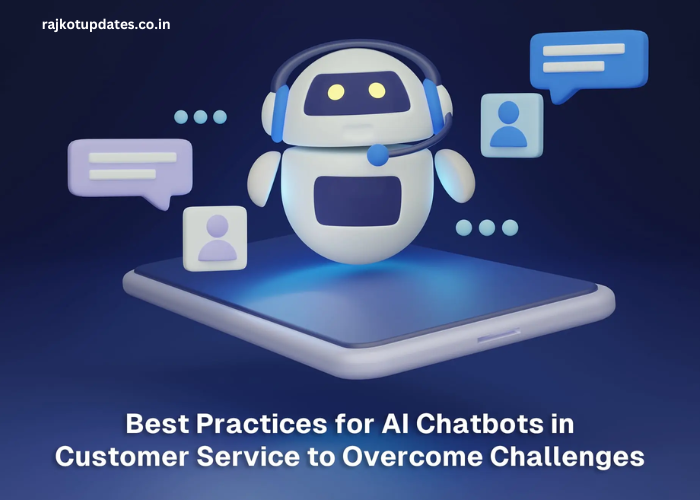Customer support has become one of the greatest differentiators for businesses in this fast-moving digital world. Quick responses, personalized interactions, and seamless problem resolution are what customers expect. In contrast, customer inquiries can be very hard to manage efficiently, especially for small and medium-sized businesses with limited resources. It is here that Artificial Intelligence enters to revolutionize customer support.
That’s where AI-powered tools step in. With advancements in artificial intelligence, small businesses can now create stunning, professional-quality presentations in minutes rather than hours. A presentation AI generator can streamline the process, transforming basic ideas into visually appealing and data-driven slides with minimal effort.
In this article, we’ll explore how businesses can integrate AI into their customer support strategy and the benefits of using chatbots, automation, and AI-driven tools to optimize customer interactions.
The Role of AI in Modern Customer Support
AI is transforming customer service by providing intelligent automation, predictive insights, and self-service options. Here are some key areas where AI is making an impact:
1. AI-Powered Chatbots for Instant Customer Assistance
Chatbots have now become an essential element of customer support in these modern times. These AI-driven virtual assistants can handle basic queries-including product information and basic problem-solving-without intervention by a human operator.
Benefits of AI Chatbots:
24/7 Availability: Customers get instant responses at any time of the day.
Cost Savings: It cuts down on a big team of customer support.
Scalability: Handles multiple inquiries simultaneously; thus, it increases efficiency.
Personalization: Data analytics helps in tailoring responses concerning customer history.
Popular AI Chatbot Solutions:
Drift – AI-powered chatbot for sales and customer support.
Intercom – Advanced chatbot with automation and live chat integration.
Zendesk AI – AI-driven self-service and chatbot tools for businesses.
2. Automating Customer Support Workflows
Automation of repetitive tasks is the key to ensuring a seamless support experience. AI-driven automation software can perform the following:
Auto-route tickets to the right department.
Generate canned responses for frequently asked questions.
Detect sentiment in customer messages to prioritize urgent requests.
Trigger follow-up emails based on user interactions.
By automating routine processes, businesses can free up human agents to handle more complex and high-value interactions.
3. AI for Sentiment Analysis and Predictive Support
AI-driven sentiment analysis lets businesses measure customer emotions in real time. This helps support teams prioritize urgent issues and tailor their responses accordingly.
Besides that, predictive AI can:
Analyze past interactions to predict customer needs.
Find patterns that could be indicative of churn.
Recommend proactive remedies for customer satisfaction enhancement.
Several companies, like IBM Watson AI and Google’s Contact Center AI, are among the leading names in predictive support solutions.
How to Integrate AI into Your Customer Support Strategy
Integration of AI into the customer support platform should be tactical. Organizations can do the following:
-
Assess Your Needs and Goals
Identify where customer support needs improvement: Is your response time too long? Or are you experiencing a huge inflow of tickets? Pinpoint the pain points for choosing the correct AI solutions.
-
The Right AI Tool
Different needs require different types of AI tools. Some essential AI solutions when it comes to customer support:
Chatbots-ChatGPT, Freshdesk AI, Ada
Automation Platforms-Zapier, Automate.io
Sentiment Analysis-MonkeyLearn, Brandwatch
-
Integrate with Your Existing System
Seamless integrations with your CRM, helpdesk, and communication tools ensure AI augments and doesn’t disrupt your workflow.
-
Monitor and Optimize AI Performance
AI is not a set-it-and-forget solution. Regularly analyze chatbot responses, automation efficiency, and customer satisfaction metrics to fine-tune AI performance.
The Future of AI in Customer Support
One can expect AI to evolve much more, offering advanced capabilities like:
Voice AI Assistants: AI-driven voice support for phone inquiries.
Hyper-personalization: AI-powered personalization of responses with every update in real time from customers’ behaviors.
Augmented Reality Support: Visual troubleshooting with AR-powered AI solutions.
Businesses that stake a claim to AI-driven customer support now will hold the key to seamless and efficient customer experiences.
Conclusion
AI is revolutionizing customer support through faster response times, automating workflows, and improving personalization. Businesses will be better placed to drive efficiencies and customer satisfaction at lower operational costs by integrating chatbots, automation, and AI-powered insights.
Be it a startup or an established enterprise, the integration of AI into the customer support strategy is not an option but an obligation. Explore AI tools today and take your customer service to the next level!



